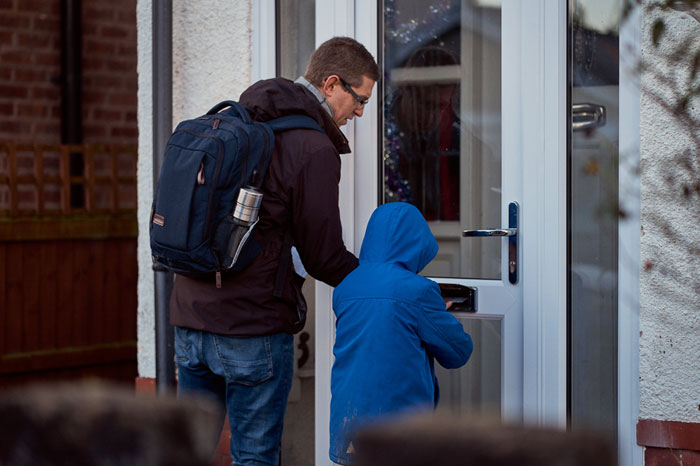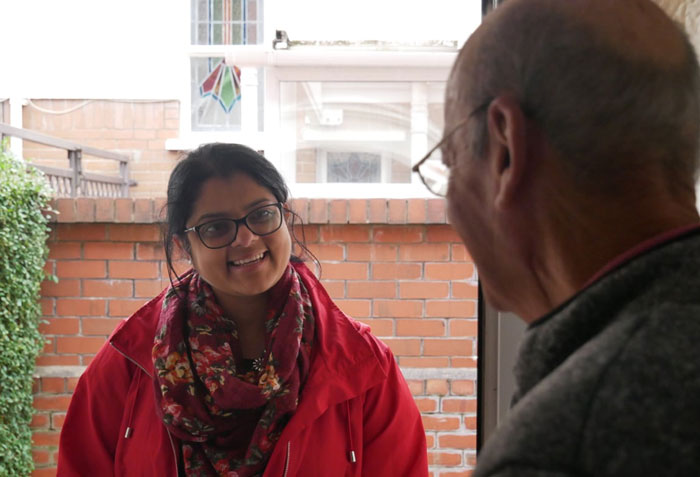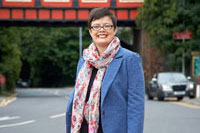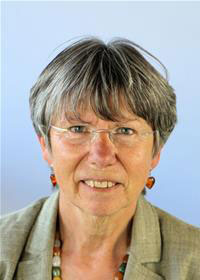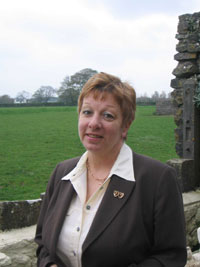Councillors are elected by communities to represent them and to run their local authority. Councillors represent wards or divisions which vary greatly in size across the country. There are 22 local authorities in Wales with some 1254 councillors.
Councillors are expected to be active in the life of their local community and act as the voice of their constituents, raising any concerns with the local council on a range of matters related to the work of the council. From waste collection to street-lights, housing to social services, councillors talk to people about everything and anything.
Welsh Liberal Democrat councillors represent the Party and its policies, and are an important part of their local party, feeding back to members about what is happening at the council.
Councillors may also work with politicians at a regional, national and European level on issues of local importance which have national implications.
Councillors are elected for a five- year term in Wales unless they are elected at a by-election, in which case they must stand again at the next normal election for the seat. They are often referred to as ‘members’ of the council.
The council is controlled by either the political party which has a majority of councillors or, if no one party has a majority, there may be a coalition of parties or a minority administration.
The councillor’s role will vary depending on whether the Lib Dem is in control or in opposition, but generally speaking will include some or all of the following broad responsibilities:
- dealing with individual pieces of casework for local residents and helping them resolve issues
- leading on local campaigns on behalf of the local communities
- serving on council committees which look at decisions being made or have specific legal or ‘regulatory’ duties
- if Lib Dems run the council, potentially making decisions which decide how local services are delivered
- acting as community leaders and helping local people get involved in the decisions made by the council.
Action point: Go online and explore your council’s website. Find out what services they provide and how many wards and councillors there are.
Being a councillor is easily the best thing I have ever done, and is something that I am really proud of. Being able to help people and make local democracy relevant to everyday life is hugely satisfying.
"I am especially keen to use my experiences to encourage others to get involved, particular underrepresented groups such as women, people of colour, and those with disabilities (whether they be visible or not) but I firmly believe in doing so by being upfront and honest about the challenges that come with it, as well as the joys it can bring.
"In the times of social media, being a councillor can become all consuming, so going into it you have to have an idea of what your personal boundaries are – how much time are you willing to commit, where do you draw the line in terms of needing to focus on other aspects of life e.g. work, family, friends, hobbies etc. It’s not a role that easily fits in with an already busy life, and so as with everything you have to figure out what the best balance is for you. Never forgetting that you can’t help others effectively if you don’t look after yourself as well."
"The demands are high but so are the rewards, and we need more diverse candidates to help local democracy become more accessible for future generations."
Councillor Emma Sandrey, Cardiff
What is involved in being a councillor?
Being a Liberal Democrat councillor is a rewarding experience and many councillors will tell you that they have obtained new skills and experiences whilst working with their communities.
Together with Lib Dem MPs, Senedd Member, and community councillors, Lib Dem councillors are also important in making sure there is a good reputation for the Welsh Lib Dems in the area.
Here are some things to think about before deciding to stand for election.
What’s the time commitment?
Think about how you would balance the responsibilities of being a councillor alongside family, friends and employment.
Talk to the people around you before you stand, their support will be really important. If you have Lib Dem councillors or former councillors in your area, have a chat with them about what is involved.
If you also work, talk to your employer. You are entitled to time off for being a councillor and many employers see the benefit of an employee gaining such great experience outside the workplace.
If you have caring responsibilities, think about how to manage those. Many people looking after children or dependent adults make excellent local councillors as they have direct personal knowledge of the services that affect people just like them.
Action point: Make a list of all the things you currently do and think about how you could manage your activities and commitments. Talk to people with experience of being a councillor and who have similar time commitments to you.
Can I afford to do it?
Most councillors receive an ‘allowance’ for their duties which is taxable. Being a councillor is a job and the allowance is to ensure that if elected you are not left out of pocket. If you are on benefits these allowances can affect your entitlement, so get advice before agreeing to stand.
There is also a childcare and dependents’ carers’ allowance for attendance at meetings payable on production of receipts, up to an agreed maximum cost per hour.
The council also provides a special responsibility allowance to those who undertake additional duties such as the Leader of the Council, portfolio holders, scrutiny chairs and opposition leaders.
Most Lib Dem Groups also agree to give part of their allowances to their local party to help get more Lib Dems elected.
Action point: Find out more about the allowances scheme run by your local council, this can be found on their web site and think about your own financial situation.
What training do I need?
You don’t have to be highly educated or have a profession. Skills gained through work, education, bringing up a family, caring for a sick or disabled relative, volunteering or being active in faith or community groups are really valuable.
In addition, the Liberal Democrats and its councillors’ association (ALDC) offers training for people thinking of standing for election, as well as for candidates, and all councils provide training for both new and experienced councillors.

